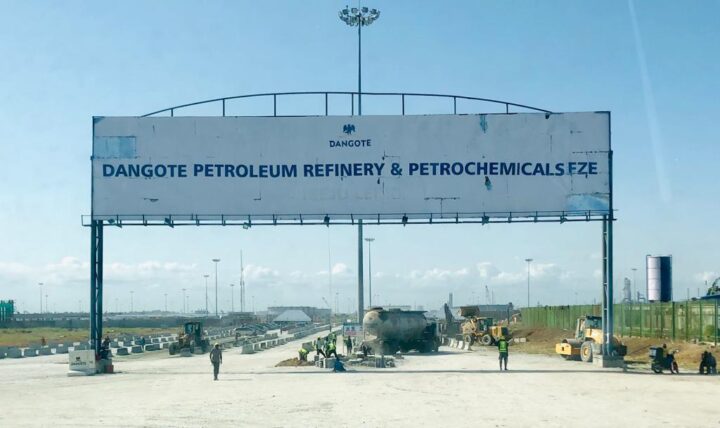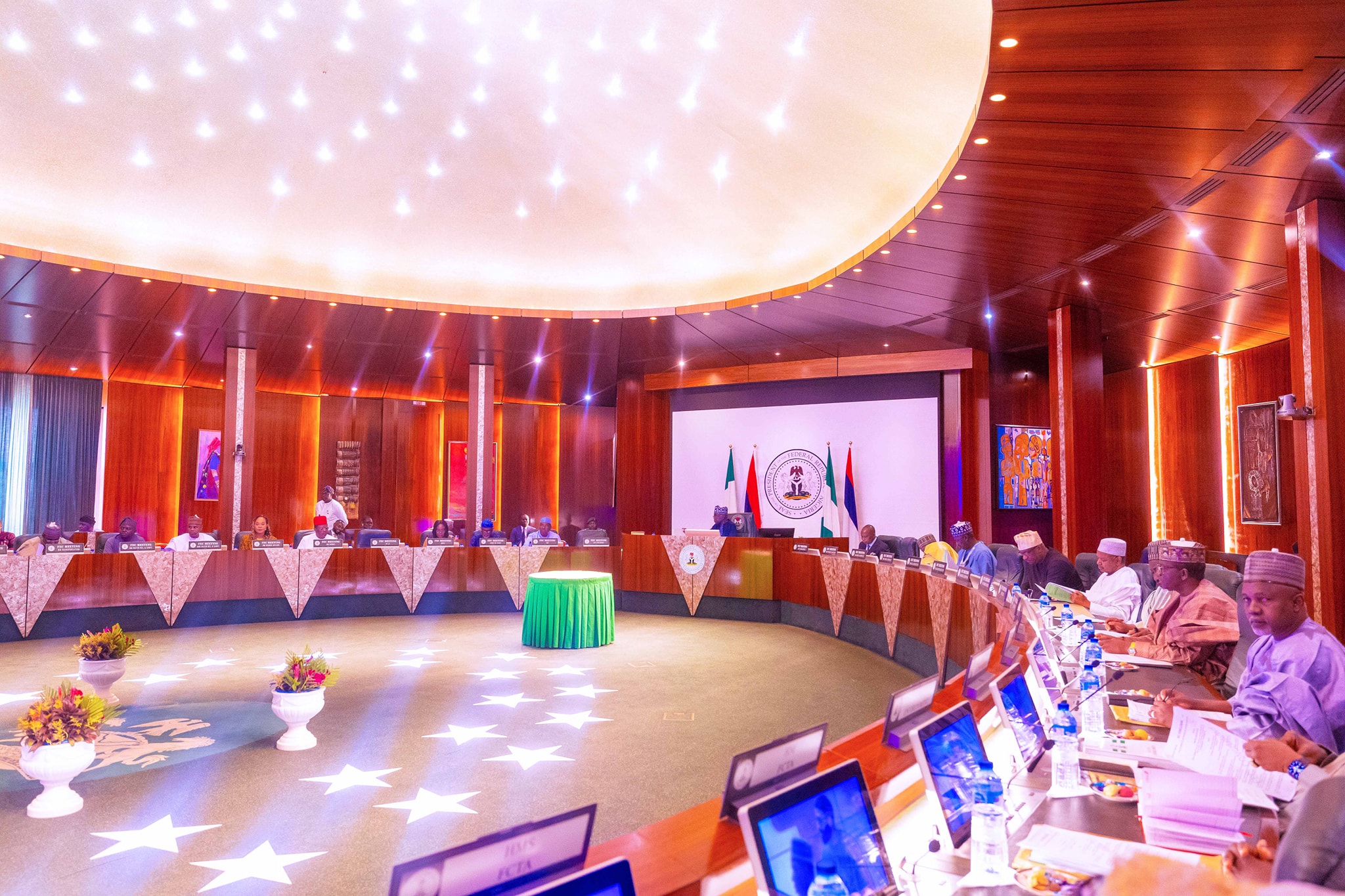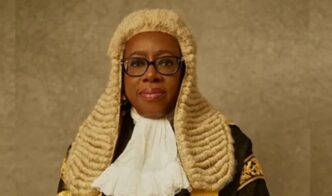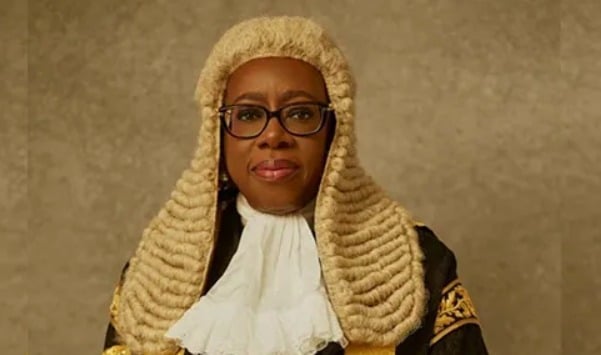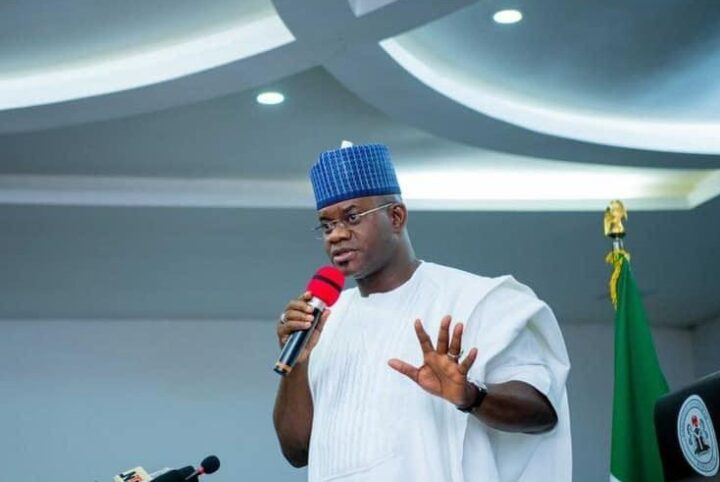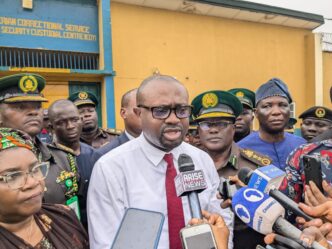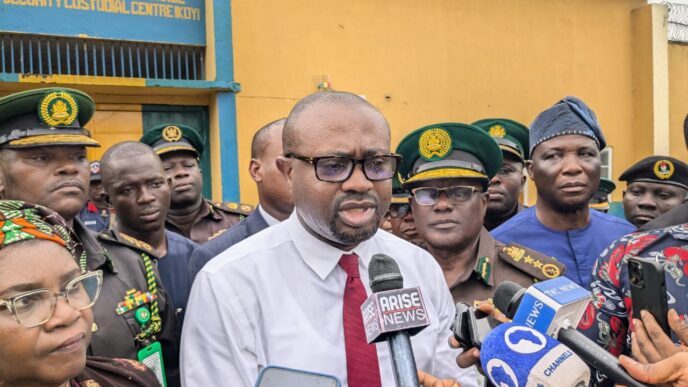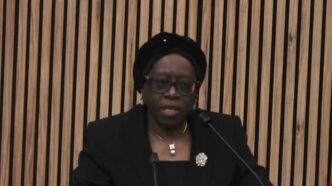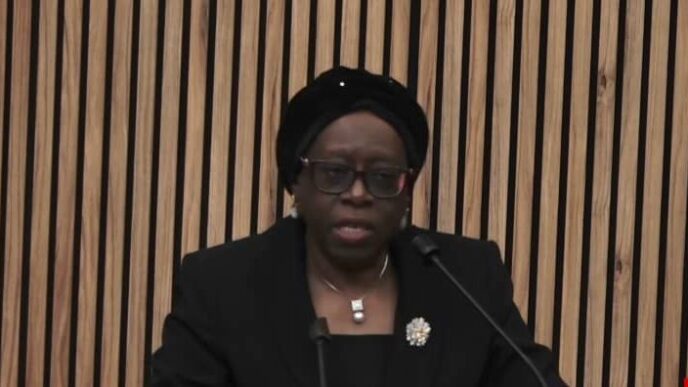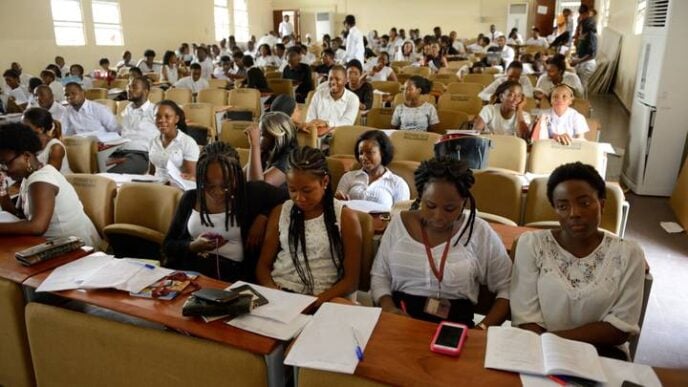The Petroleum and Natural Gas Senior Staff Association of Nigeria (PENGASSAN) has given reasons oil marketers can not buy premium motor spirit (PMS), also known as petrol, directly from the Dangote Petroleum Refinery.
Festus Osifo, president of the association, during a press conference in Lagos on Tuesday, said one of the reasons is that petrol prices will rise beyond the current level, as oil marketers will sell without subsidy.
On September 14, the federal government said Dangote refinery will sell petrol to only the Nigerian National Petroleum Company (NNPC) Limited, adding that interested marketers would have to buy the product from the national oil firm.
The next day, NNPC started lifting petrol from the Dangote refinery after a protracted period of price negotiations.
Advertisement
At the close of loading on the same day, NNPC said it bought PMS from Dangote refinery at N898 per litre.
However, the Dangote refinery countered the claim, describing it as “both misleading and mischievous”.
Clarifying the pricing, NNPC said petrol would be sold at N950.22 per litre across all its retail outlets in Lagos, while residents in the northern part of Nigeria will pay more for the product, with those in Borno expected to pay the highest petrol pump price of N1,019.22.
Advertisement
Speaking on the issue, Osifo said the NNPC was the sole buyer of petrol from Dangote refinery because the company was “putting some form of subsidy” on the product.
“NNPC takes the product at N950 per litre. They would now offer it to marketers around over N700 because if they offer it at N950, we will be buying premium motor spirit (PMS) today at about N1,100 to N1,200 official price, even across NNPC retail stations,” he said.
“What that means is that NNPC buys it at a cost, but they would go back and put some level of subsidy in it.
“That is the reason why other marketers can not go today to Dangote refinery to buy.”
Advertisement
He said the national oil company is not preventing other marketers from lifting the product from the refinery.
“If NNPC is buying at N950 per litre from Dangote with all the cost inputed in it and they are now selling at N700 plus to marketers, it means that there is a shortfall that NNPC is managing,” Osifo said.
“But if you ask TotalEnergies, for example, to buy from Dangote, TotalEnergies would buy from Dangote at almost the same price but TotalEnergies would sell to marketers at maybe N1,000 plus.”
He said this means that petrol sold by NNPC to other marketers would be cheaper and that from TotalEnergies, much more expensive.
Advertisement
“That is why they (marketers) are staying away. It is not that NNPC wants to be monopolistic,” he said.
OSIFO: FG SHOULD INCREASE STAKE IN DANGOTE REFINERY TO 45%
Advertisement
Speaking further, Osifo advised the federal government to increase its stake in the Dangote refinery to at least 45 percent.
In September 2021, NNPC acquired a 20 percent interest in Dangote refinery for $2.76 billion.
Advertisement
However, on July 14, Aliko Dangote, the refinery’s president, said the national oil company now owns 7.2 percent stake in the refinery — a development he termed a “big mistake”.
Speaking on the situation, Osifo highlighted the importance of the federal government reconsidering its decision to reduce its stake in the refinery.
Advertisement
“The federal government should increase its shareholding stake in Dangote’s refinery from the current 7 percent to at least 45 percent. This will ensure further energy assurance and security for the citizens,” he said.
The PENGASSAN president also recommended ramping up efforts to make the nation’s four refineries functional.
Once operational, Osifo advised the government to divest majority shareholdings and own at most 49 percent of the shareholding in the four refineries.
He said core investors would be invited to take the remaining “51 percent as applicable in NLNG”.
Osifo said the government should partner with players in the private sector to maintain the already available petroleum product storage in the six geopolitical zones in the country.
“When operational, petroleum products will be stored there and only made available when there is a shortage in supply,” he said.
“This will help in eliminating the bad roads and severe erosion-imposed perennial shortages that often lead to queues at petrol stations across the country.
“Expansion of pipelines that could be used in the delivery of refined petroleum products across the length and breadth of the country as this will reduce the pressure put on our roads by trucks carrying these products.”
Speaking further, he asked the government to provide compressed natural gas (CNG) infrastructures across the country.
“Compressed natural gas (CNG) has been adjudged to be the most affordable and cleaner form of energy that is required to propel a car in the country today,” Osifo said.
“Sadly, the infrastructure for this product is sparsely distributed across the country. The government through its partners should deepen the reach of these infrastructures across every city in Nigeria.”
According to the PENGASSAN president, to achieve energy security, energy must be affordable.
To ensure affordability, Osifo said the government must strive to stabilise the exchange rate as the continuous slide of the naira will greatly hamper the affordability of energy in Nigeria.
Add a comment
